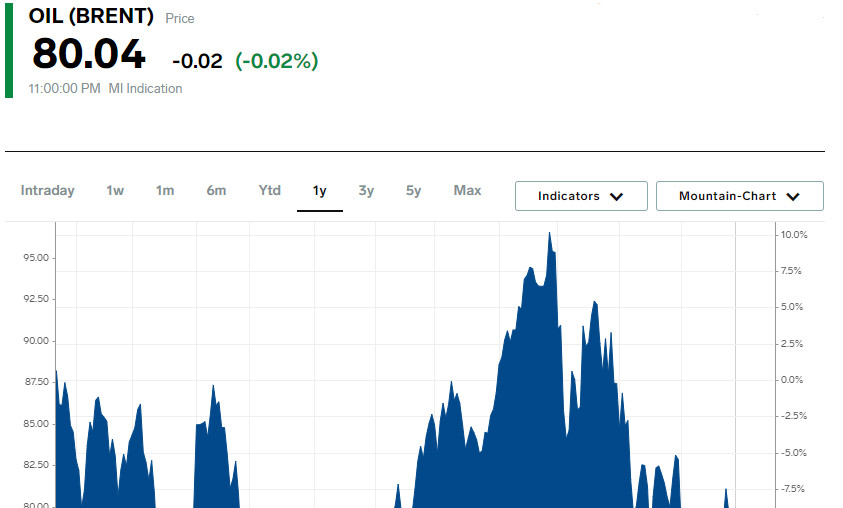
Brent crude oil futures dropped by 14 cents, or 0.2%, to $79.92 per barrel by 01:25 GMT, while West Texas Intermediate (WTI) crude oil futures last declined by 10 cents, or 0.1%, to $74.66 per barrel.
Both contracts had risen by approximately 2% on Monday as a Ukrainian drone strike on Novatek's fuel terminal in Ust-Luga raised supply concerns and led to a price surge. Analysts suggest that Novatek is likely to resume full-scale operations within a few weeks.
While the damage to loading docks at the Ust-Luga terminal only "briefly impacted exports," this move increases the likelihood of the Russian-Ukrainian conflict "shifting into a new phase, with both sides targeting key energy infrastructure," stated analysts at ANZ Research in their report.
Geopolitical tensions were overshadowed by ongoing concerns about the slowdown in China's economic recovery, raising worries about global oil demand, given that the Asian giant is the world's largest crude oil importer.
China has implemented measures to support its economy, but domestic consumption remains sluggish, making oil traders nervous about demand prospects.
In the Middle East, the United States urged Israel to protect innocent people in hospitals, medical staff, and patients as Israeli forces assaulted one hospital and besieged another, advancing into the western Khan Yunis sector in Gaza.
American and British forces also conducted a new round of strikes on the Houthi rebels' underground storage and missile and reconnaissance capabilities linked to Iran.
Houthi attacks on ships in the Red Sea region have disrupted global navigation and heightened concerns about inflation. The group claims their attacks are in solidarity with Palestinians when Israel strikes Gaza.
Additionally, crude oil inventories in the United States are expected to decrease by approximately 3 million barrels by January 19. Distillate stocks were anticipated to decrease last week, while gasoline stocks are expected to increase.
Managers seem to conclude that ongoing economic growth in the United States will continue to exert pressure on prices, while the conflict in the Middle East will provide some support to prices in Europe and Asia.
Funds appear to be betting on contrasting economic outlooks between the ongoing U.S. economic growth and a protracted recession in Europe.
 English
English 
 Русский
Русский Bahasa Indonesia
Bahasa Indonesia Bahasa Malay
Bahasa Malay ไทย
ไทย Español
Español Deutsch
Deutsch Български
Български Français
Français Tiếng Việt
Tiếng Việt 中文
中文 বাংলা
বাংলা हिन्दी
हिन्दी Čeština
Čeština Українська
Українська Română
Română

